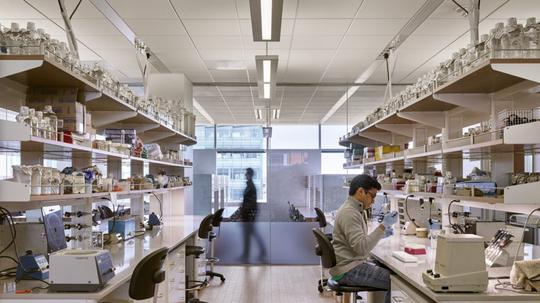
With a new boost in funding, researchers at a local university are working on developing a new type of supercomputer.
The cyberinfrastructure team at UT Dallas’ Office of Information Technology announced receiving a $1.4 million grant from the National Science Foundation. The new funding will help researchers there create a regional cyberinfrastructure hub, called the Texas Research and Education Cyberinfrastructure Service (TRECIS), providing connectivity and networking services for cross-campus activities in the UT system.
In addition, the new funding will help the university hire postdoctoral researchers – two at UT Dallas and one at UT Arlington – who will help contribute to the technology, as well as train other researches on the network in high-performance computing.
“It’s a pretty big deal. I think it’s going to be impactful because of the way we’ve structured this methodology for developing staff and skills,” said Christopher Simmons, director of cyberinfrastructure and research services in OIT and the principal investigator on the NSF grant, in a statement. “I’m trying to use these postdocs to drive a cultural change at our universities to appreciate the role of the research facilitator.”
UT Austin already operates a similar network, called the Texas Advanced Computing Center. However, the system's leaders hopes TRECIS will help relieve some of the burden on that system. TRECIS will also be used to help faculty members across the UT system without computational or computing backgrounds to structure their research and use computing models to test data and theories.
Already, faculty in the UT system have been using supercomputer infrastructure to simulate weather patterns and climate changes, as well as helping to map the spread of the coronavirus in different communities.
“The technology at the campus level is developing too quickly for standard campus information technology people to keep pace,” Simmons said. “We are developing the next class of advanced cyberinfrastructure for research and education facilitators who will contribute to open science and be able to run supercomputer centers.”
Currently, UT Dallas’ supercomputers are housed at its Synergy Park North facility in Richardson, but it plans to move the equipment over the summer to the Arlington Data Center in Fort Worth, which is operated by the UT system.
The NSF grant also comes with a social impact side. Part of the funding will go to support the Lonestar Education Research Network, a nonprofit providing computer networking services to universities and K-12 schools in the state. Part of the funding will also go to help train personnel and support research at historically Black colleges and universities across the country.
“We’ve been successful in getting supercomputers into the hands of scientists and engineers but not so good at getting academic researchers the support staff they need,” Simmons said. “Engineering, natural sciences and mathematics are the areas that have huge computing needs, but there’s no formal program built around those needs. Computational science requires dedicated tools and skills, but most campuses do not have computational science programs.”








